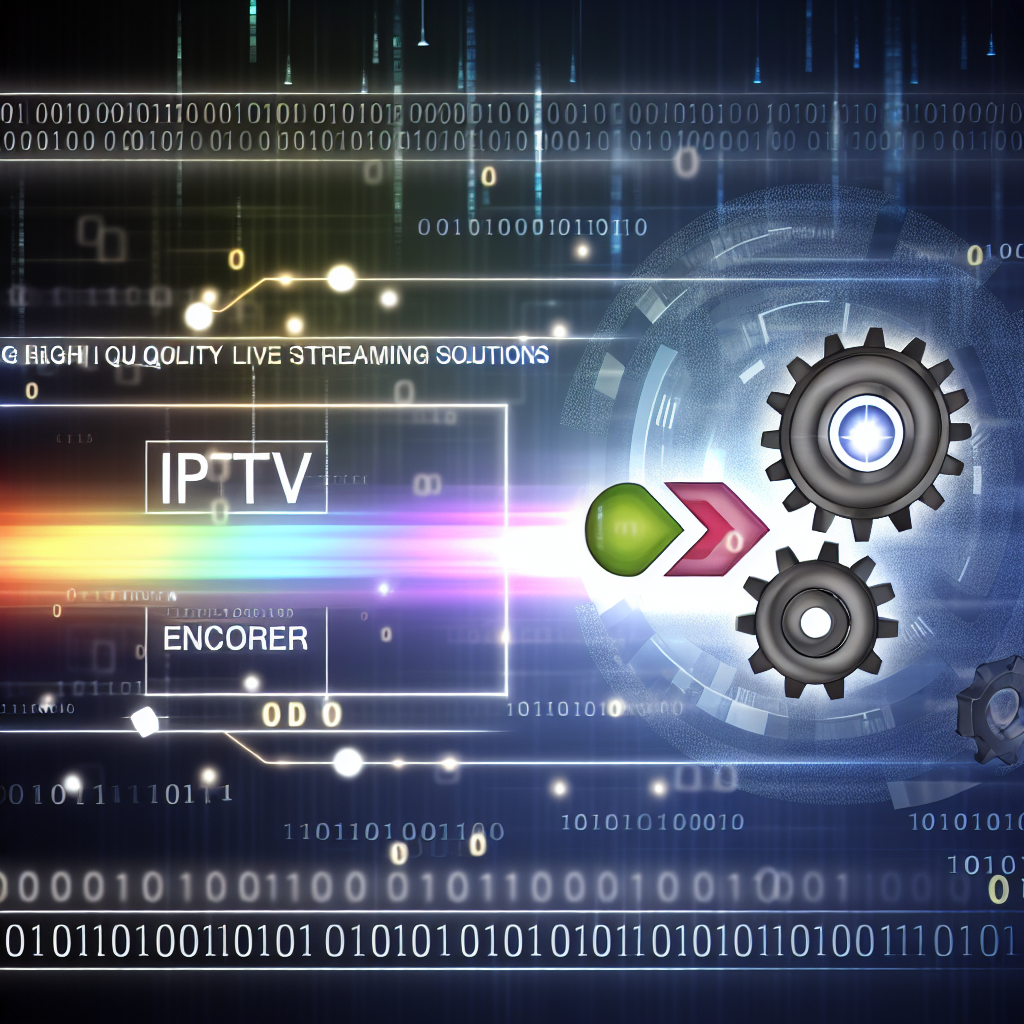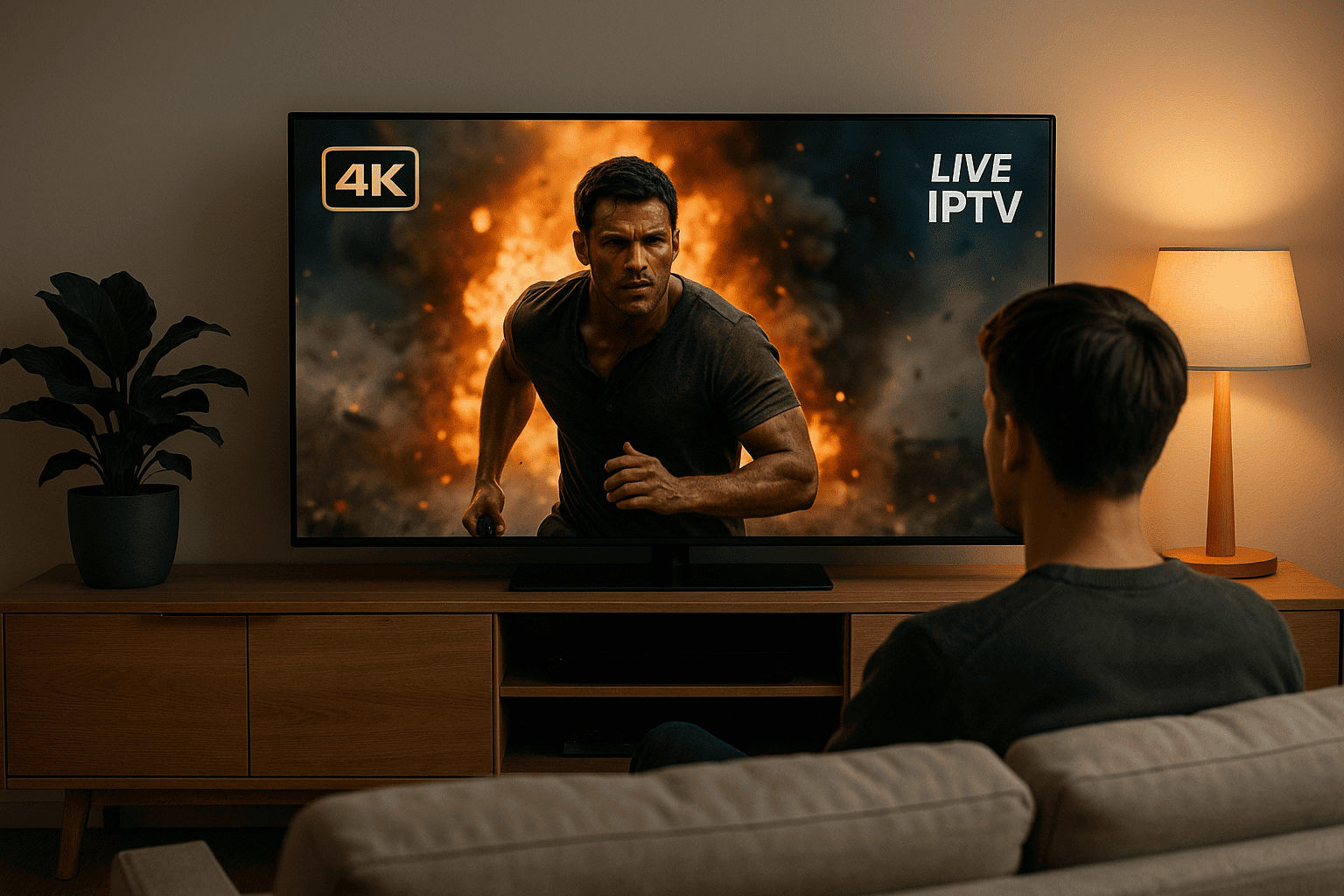In today’s digital landscape, an IPTV encoder for High Quality Live Streaming Solutions is essential for delivering seamless and stunning content.
| What is an IPTV Encoder? |
| Importance of IPTV Encoders |
| How Does an IPTV Encoder Work? |
| Key Features to Consider |
| Best Practices for Using IPTV Encoders |
| Frequently Asked Questions |
| Conclusion |
What is an IPTV Encoder?
An IPTV (Internet Protocol Television) encoder is a sophisticated device or software that compresses and converts video content from a variety of sources (like cameras or video files) into a digital format suitable for streaming over the internet. This conversion is crucial as it affects the quality of video playback on various devices, which can be everything from smart TVs to mobile devices.
IPTV encoders encode video in real-time, making it a fundamental component for live broadcasts. By converting high-quality video into manageable file sizes, an IPTV encoder ensures minimal latency, which is critical for live streaming events such as sports, concerts, and news broadcasts.
Recent advancements in encoding technology now allow for higher compression rates without compromising video quality. This means more viewers can watch the same live broadcast without experiencing buffering, even in regions with lower bandwidth.
Importance of IPTV Encoders
The importance of IPTV encoders cannot be overstated, particularly in an era where streaming services are on the rise. Here’s why having a reliable IPTV encoder is essential:
H3: Quality Assurance
A high-quality IPTV encoder ensures optimum video quality. It provides support for various resolutions and frame rates, allowing content creators to deliver HD content even over standard bandwidths. High-grade encoders support advanced codecs like H.264 or H.265, which are essential for high-quality streams.
H3: Real-Time Streaming
With real-time encoding, viewers get instant access to live events without delays. Whether for sports, gaming, or any other live content, real-time encoding reduces lag and optimizes viewer engagement.
H3: Compatibility with Various Devices
IPTV encoders are designed to ensure compatibility with various devices. They can stream content seamlessly on phones, tablets, smart TVs, and streaming boxes. This broad compatibility is essential for reaching a wider audience and enhances user experience.
H3: Flexibility
Modern IPTV encoders offer flexible configuration settings, allowing providers to tailor services according to user needs. This flexibility includes customizing resolutions, aspect ratios, and bitrates, ensuring an optimal viewing experience.
The importance of having a reliable IPTV encoder for delivering high-quality content cannot be downplayed. A good IPTV encoder translates into enhanced viewer engagement and satisfaction.
How Does an IPTV Encoder Work?
Understanding how an IPTV encoder works can help you appreciate its complexities. Here’s a step-by-step overview:
H3: Source Input
An IPTV encoder accepts video input from various sources. This can range from cameras, desktops, or archived footage. The variety of input options expands the possibilities for content creation.
H3: Encoding Process
Once the source video is inputted, the encoder compresses and converts the video into a digital format. This process uses specific codecs that can efficiently encode video data. For instance, H.264 and H.265 are popular choices due to their ability to deliver high-quality video in smaller file sizes.
H3: Streaming Protocols
After encoding, IPTV encoders use streaming protocols (like RTMP or HLS) to deliver the video to various platforms or endpoints. This is crucial because these protocols dictate how video data is transmitted effectively, minimizing lag.
H3: Distribution
The final step involves distributing the encoded video stream. It can be sent to multiple servers, allowing it to be viewed by countless viewers simultaneously. This scalability is a key factor in the popularity of IPTV services, as they can handle large viewing audiences without losing quality.
Understanding the inner workings of IPTV encoders can empower service providers to choose the right solution for their streaming needs.
Key Features to Consider
When selecting an IPTV encoder, it’s essential to consider various features that can optimize your live streaming experience:
H3: Quality of Encoding
Look for encoders that support multiple resolutions and codecs. The more capable the encoder, the better the fit for different streaming needs, from low-bandwidth situations to high-definition broadcasts.
H3: Multi-Format Support
The ability to support various output formats can be a game-changer. From traditional broadcast standards to web-based streaming, having multi-format support ensures that your encoder can adapt as your streaming needs evolve.
H3: User Interface
Choose an encoder with a user-friendly interface. Easy navigation can save time, especially during live events where quick adjustments may be necessary.
H3: Integration Compatibility
A good IPTV encoder should seamlessly integrate with different streaming platforms and technologies. This includes compatibility with popular cloud services, video players, and even analytics tools to measure performance.
H3: Reliability and Performance
Finally, consider reliability. The last thing you want during a live event is for your encoder to fail. Look for product reviews and recommendations to gauge its performance track record, particularly in high-demand situations.
Taking the time to research and consider these features before settling on an IPTV encoder can save provider headaches later.
Best Practices for Using IPTV Encoders
To maximize the capabilities of your IPTV encoder, here are some best practices:
H3: Regular Updates
Always keep your encoder’s firmware updated. Manufacturers frequently release updates that fix bugs, introduce new features, and enhance overall performance.
H3: Test Before Going Live
Conduct test streams to fine-tune settings. This helps identify issues related to encoding quality, latency, or compatibility problems before you go live.
H3: Monitor Network Performance
Ensure that your internet connection can handle the required bandwidth. A slow or inconsistent network can lead to buffering and other quality issues.
H3: Backup Solutions
Have a backup encoder or plan in place for important live events. If one encoder fails, you can switch to another without interrupting your service.
H3: Audience Engagement
Utilize analytics tools to understand viewer behavior and preferences. This data can inform future streaming decisions and content creation.
Incorporating these best practices can help you maintain high standards for your live streaming service.
Frequently Asked Questions
H3: What is the difference between MPEG and H.264?
MPEG is a standard for compressing video files, while H.264 refers specifically to a video codec utilized for digital video compression. H.264 is known for its efficiency and quality, making it a preferable choice for IPTV services.
H3: Can I use an IPTV encoder for recorded content?
Absolutely! An IPTV encoder is versatile and can be used not only for live streams but also for encoding pre-recorded content for later distribution.
H3: What are the hardware requirements for an IPTV encoder?
Hardware requirements will vary based on the encoder type and the volume of streaming. In general, a powerful CPU, sufficient RAM, and a stable internet connection are necessary to ensure quality performance.
H3: What is a transcoder, and how does it differ from an encoder?
A transcoder translates video files from one format to another, while an encoder prepares video files for streaming. Transcoding is often used in post-production, whereas encoding is vital for live broadcasting.
H3: Are there alternatives to dedicated IPTV encoders?
Yes, you can opt for software-based encoders, which run on computers or servers. However, dedicated hardware encoders typically offer higher performance standards for live events, especially regarding quality and latency.
Incorporating these FAQs can provide live streamers with a clearer understanding of IPTV technology and its applications.
Conclusion
In summary, utilizing an IPTV encoder for High Quality Live Streaming Solutions is crucial for delivering engaging and seamless content. Each component, from the encoding process to network performance, plays a major role in viewer satisfaction.
To learn more about the intricacies of IPTV encoders and live streaming solutions, consider sharing this article with others who may be interested. Together, we can enhance our understanding and implementation of IPTV technology.




